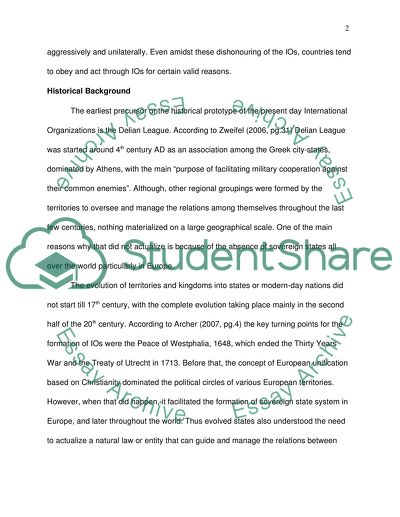Cite this document
(“Why states act through formal International Organizations Essay”, n.d.)
Retrieved de https://studentshare.org/history/1395466-why-states-act-through-formal-international-organizations
Retrieved de https://studentshare.org/history/1395466-why-states-act-through-formal-international-organizations
(Why States Act through Formal International Organizations Essay)
https://studentshare.org/history/1395466-why-states-act-through-formal-international-organizations.
https://studentshare.org/history/1395466-why-states-act-through-formal-international-organizations.
“Why States Act through Formal International Organizations Essay”, n.d. https://studentshare.org/history/1395466-why-states-act-through-formal-international-organizations.


